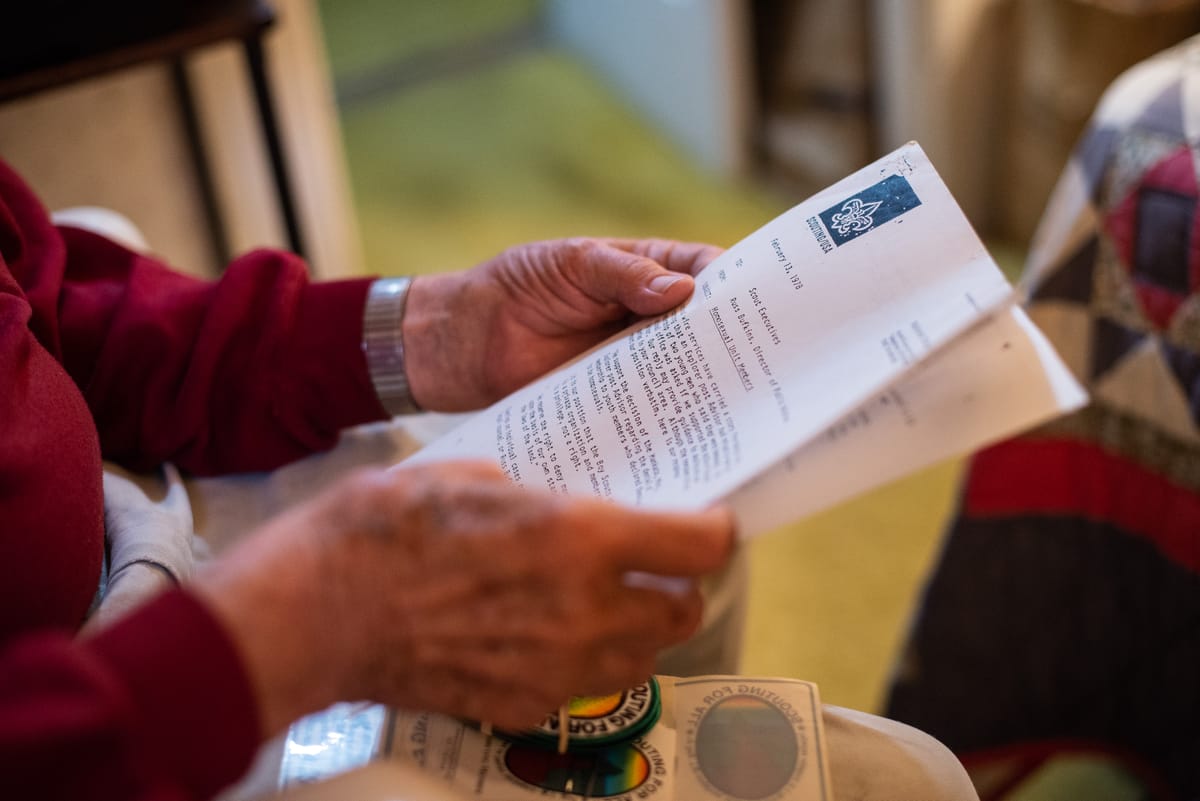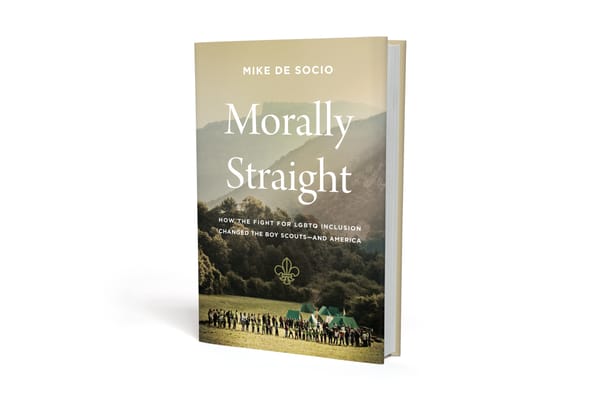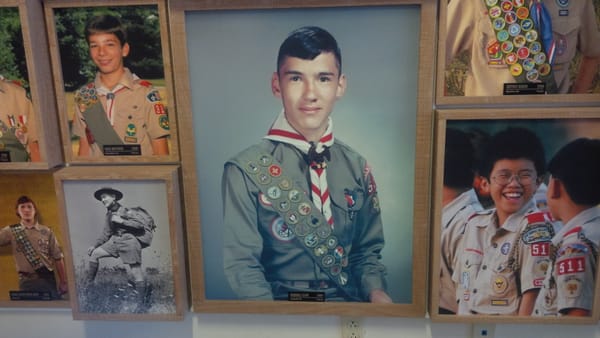The most surprising thing I learned reporting my book
The history of the BSA's anti-gay policy held many unexpected twists and turns.

Growing up in Scouting, I made a lot of assumptions about the Boy Scouts of America's anti-gay membership policy.
The first (obviously incorrect) assumption was that the BSA didn't even have a policy about gay members. It wasn't until after I became an Eagle Scout in 2011 that I realized the policy existed at all.
My second assumption, once I knew that the policy existed, was that it must have always existed—baked in since the organization's founding. It would take me a very long time to realize I was wrong about that one, too.
As I reported my book about the fight for LGBTQ+ inclusion in the BSA, I found myself constantly pushing back the timeline, diving deeper and deeper into the past. And I didn't find the origin of the anti-gay policy until I arrived at the year 1978.
I almost missed the revelation at first. I was at the Connecticut home of David Knapp, a legendary gay Scouter and activist for inclusion, sorting through a pile of old Scouting documents he had. Stapled together were a few pages that Knapp knew were of great importance: Letters issued by the BSA in 1978.
In my state of overwhelm at the sheer volume of material he was showing me, it didn't click at first that these letters were the first-ever written expression of the BSA's anti-gay policy. It was obvious to Knapp, someone who grew up in Scouting in the 1940s, and spent decades in the program before the policy existed. But for me, who joined Scouting in 2000, I never knew there was a time before the anti-gay policy.
Reader, there was. As I've written previously, the BSA created this policy as a knee-jerk reaction to a incident in Minnesota, where two boys were kicked out of their Scouting unit for admitting they were gay. These teenagers fought back, challenging their expulsion and igniting a national news cycle that forced the BSA to respond—and implement a new policy banning gay people from the ranks.
When I reflect on my three-year book reporting journey, this remains one of the most surprising and remarkable things I learned. Contrary to what the BSA would argue in court as it tried to keep out gay Scouters like Tim Curran and James Dale, this anti-gay policy was not fundamental to the organization; it had been created 68 years after its founding.
We can look back now and see that it was an aberration, a costly and harmful detour for the organization that ended in 2015. But for the countless activists and Scouters who dedicated their lives to changing the policy, it was not obvious that the BSA would ever steer out of that detour.
In my book, which arrives on bookshelves on June 4, I tell this origin story in much more detail, taking you back to the small town in Minnesota where it all began. And I chronicle the stories that animated that 37-year battle to defeat a policy of discrimination.
Morally Straight: How the Fight for LGBTQ Inclusion Changed the Boy Scouts—And America, is available for pre-order wherever books are sold.


